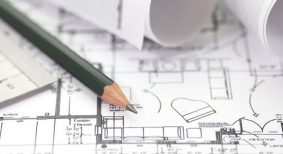The level of uncertainty is high. The COVID-19 crisis presents challenges for architects and all those in the profession, as well as our families, clients, colleagues, and communities. The impacts are far-reaching, affecting us socially, mentally, and financially. We face this pandemic collectively, and we must all do our best to respond to this crisis in a manner that is prudent and compassionate.
I would like to iterate that the public’s expectation of professional standards has not diminished. Confidence in the regulation of the architectural profession remains, and the response to this crisis must be in alignment with these expectations in order to maintain the public’s trust.
AIBC has received communication/feedback regarding COVID-19 – various ideas, concerns, and recommendations – and how the profession should respond, and what role the AIBC should play. Several common themes have emerged:
Practice Resources
Many members have reached out with specific practice-related questions. They have ranged from clarification on professional obligations, to inquiries about impacts on municipal permit processes. Registrants are looking for resources during this time of uncertainty, specifically about how architectural professionals should be navigating and responding to COVID-19.
To help address this, the Institute has created a dedicated COVID-19 webpage to share information with registrants. An “Architectural Practice” section can be found at the top of the page, which includes specific information about field reviews, digital seals, standard form contracts, and more. I highly encourage you to check the page frequently, as new information is posted as soon as it becomes available. In addition to the website, registrants can reach out directly to the AIBC Practice Advice team, who can also assist with questions.
AIBC Council and staff are aware of the profound impacts this has on the profession – the Institute is committed to helping registrants navigate the practice-related challenges caused by COVID-19, and will continue to share information as quickly as possible.
Continuing Education System Deadline Extension
We have also received feedback – both in support and not – of the CES deadline extension to September 30. Given the rapidly changing situation, I would like to emphasize that all decisions, professional expectations and regulatory obligations are being reviewed as the crisis evolves.
The three-month extension was the maximum length that could be granted without seeking AIBC Council’s formal input; expediency was paramount, and extensions beyond this threshold require additional regulatory and procedural steps. Regulatory bodies across Canada have approached their continuing education extensions in a variety of ways, and this is because there are fundamental differences between jurisdictions, including mandates, policy, and approaches to CES.
To help registrants meet their requirements, the AIBC is compiling a list of additional online learning opportunities that will be shared. It is worth noting that the AIBC requires half the number of total hours than several other jurisdictions and that 50 per cent of AIBC CES participants are currently compliant, or within six hours of being compliant.
Again, and most importantly, we recognize the response must be reasonable given these unprecedented circumstances. As needed, further adjustments and action – including a possible additional CES extension – will be taken to help ensure registrants can fulfill their requirements, while still upholding the Institute’s core regulatory mandate.
Role of the Regulator
All of the primary functions of the Institute (from registration and licensing, to professional conduct and illegal practice) continue as staff work from home, and committee meetings take place remotely. While several programs have been affected by the pandemic, the AIBC continues to operate within its regulatory scope, and further its mandate through delivering a range of services and initiatives.
The role of the regulator during this crisis is to ensure that the public-interest is still being met, while also being adaptable and understanding of the impacts COVID-19 has on the ability of the profession to carry out its obligations and duties. These are unprecedented circumstances that have affected us all in different ways, and the regulator must be cognizant of this in its actions and responses. It is about balance.
With that in mind, registrants are encouraged to reach out and be part of their own communities. Across Canada and within the province, there are architectural and design-focused organizations with mandates that are centred around advocacy and community. The RAIC, for instance, has conducted surveys and drafted templated letters for members to send to the federal government encouraging the inclusion of the architectural sector in their funding support.
Looking Ahead
While it is unclear what exactly the long-term effects will be from this crisis, it is clear that the world, and the profession, will not be the same once it passes. There will be implications for how architecture is practiced: how we collaborate with colleagues, engage with clients, and review construction, will all change.
Likely new guidelines and protocols will greatly alter how we consider and shape space in general. However, as with many epochal events, the present circumstance also contains opportunity for advancement, and it is my hope that it aids in our ability to address other large systemic challenges like climate change – a challenge that is also abstract to many but requires collective action.
The practice of architecture is an intrinsically hopeful one, having as its core tenet faith in there being a tomorrow. This is still true, and I encourage us all to take a breath and remember this fact as we look ahead, and plan for the future – a future, that as architects, we will have a hand in shaping.
Ian Ross McDonald, Architect AIBC, AAA, NWTAA, OAA Council president







